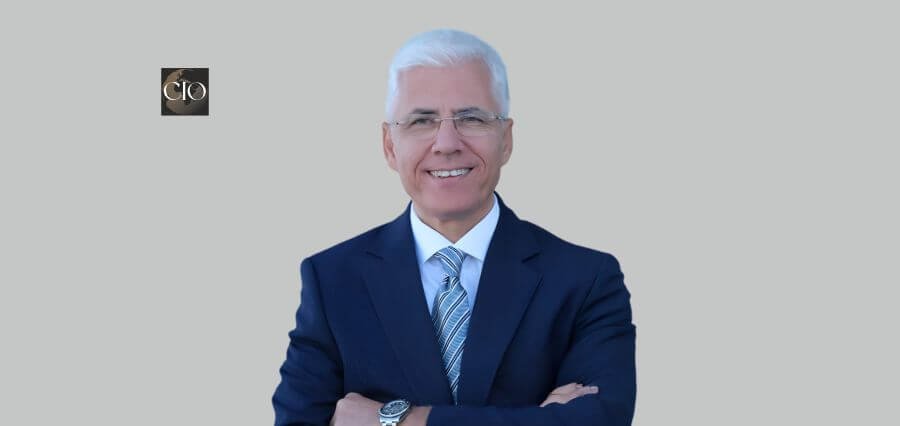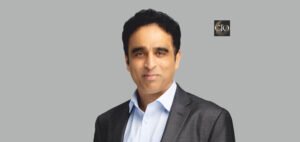Murat Atici is the CEO of Bimser and is a major player to make Turkish enterprise software a global player. Over a career spanning more than 30 years at global technology leaders Oracle, SAP, and Cisco, Murat Atici brings an uncommon mix of strategic vision, technology acumen and people-first leadership in the industry.
Since taking Bimser’s helm in 2023, Murat Atici has taken this company increasingly global, prioritized AI-powered innovation and grounded sustainability into the company’s very fiber. His leadership is about more than just scaling a company, it’s about building an ecosystem where digital transformation, purpose and performance all flourish with each other.
In this conversation, we discuss Murat Atici’s journey as a business leader, the strategic moves that have driven the growth and evolution of Bimser, and his perspective on the future of business in Turkey and beyond.
What inspired your journey into leadership, and how did your early vision evolve into the company you lead today?
My journey into leadership was inspired by a lifelong fascination with how technology can solve complex problems and transform industries. Having spent over 30 years in the technology sector, I was fortunate to work with some of the world’s most innovative companies, including Oracle, SAP, Cisco, HP, and Samsung. These roles taught me that leadership is not just about driving performance; it’s about enabling people and creating environments where ideas can thrive.
When I joined Bimser in August 2023 as CEO, I saw a company with immense potential. Bimser had already established itself as a leading Turkish enterprise software company with a strong foundation in workflow automation, quality management, asset and maintenance management solutions, low-code platform, and governance, risk and compliance management solutions. My early vision was to build on that foundation and take Bimser to the global stage. Today, we are doing exactly that — expanding our presence across the U.S., Middle East, CIS, South Africa, and other international markets, while integrating advanced technologies like AI and IoT into our core platforms.
How would you describe your leadership philosophy, and how has it shaped the organization’s growth and culture?
My leadership philosophy is rooted in three principles: customer-centricity, innovation with impact, and empowering people. At every organisation I’ve worked with, I’ve made it a point to put the customer’s voice at the centre of strategic decision-making. That same approach guides my work at Bimser.
Innovation is part of our DNA, but we don’t innovate for the sake of novelty. We innovate to solve real business challenges—whether that means embedding AI into our Synergy Low-Code Platform or building tools to help our clients track their carbon footprints. Equally important is empowering our people. I believe in fostering a culture of autonomy, continuous learning, and ownership. When people are encouraged to take initiative, they become not just employees but co-creators of the company’s success.
What are the most pivotal milestones or turning points you’ve achieved as CEO that significantly impacted the company’s trajectory?
The first major milestone under my leadership was reinforcing Bimser’s global expansion strategy. We took a hard look at our international operations and realigned them to better serve our target markets in the U.S., Middle East, and Asia. That meant building stronger partnerships, investing in our New York and Dubai offices, and adapting our go-to-market strategies for each region.
Another significant turning point was the evolution of our product roadmap. We prioritized AI integration across our platforms, particularly Synergy, QDMS, and bEAM. This shift allowed us to deliver smarter, more proactive solutions that adapt to our clients’ changing needs. We also strengthened our partner ecosystem, which now includes more than 150 global solution partners to accelerate deployment and support. These strategic shifts have yielded tangible results: increased market share, improved customer satisfaction, and stronger brand recognition on the global stage.
In what ways has your leadership contributed to redefining your sector or influencing broader market trends in Turkey?
Bimser has always been at the forefront of enterprise digitalisation in Turkiye, but we’re now pushing that boundary even further. By embedding AI capabilities into our platforms and enabling rapid application development through low-code solutions, we’re changing the way companies think about digital transformation.
We’re also helping to redefine what it means to be a Turkish tech company. For too long, the perception was that innovation had to come from Silicon Valley or Western Europe. We’re proving that world-class software can be built in Turkiye and exported globally. Our success is influencing peers in the tech ecosystem to invest more boldly in R&D, to think beyond local markets, and to adopt customer-first mindsets.
How do you cultivate a high-performance culture that also values well-being, diversity, and purpose?
A high-performance culture is sustainable only when it’s built on well-being and purpose. At Bimser, we encourage people to bring their whole selves to work. That means supporting flexibility, investing in leadership training, and creating safe spaces for new ideas. We promote from within, reward risk-taking, and celebrate wins both big and small.
Diversity, for us, is more than just a metric—it’s a driver of innovation. Our teams bring together a range of perspectives, which strengthens our product design and customer engagement. Purpose comes from understanding how each person’s role connects to our mission: to simplify complex business operations and support sustainable growth. When people understand the “why” behind their work, performance follows naturally.
What have been your most defining leadership challenges, and how did you navigate them with resilience?
One of the biggest challenges was navigating change in a company that already had a strong legacy. Change can create resistance, even when it’s positive. My approach was to listen first, then act. I engaged deeply with our teams, customers, and partners to understand their concerns and aspirations. From there, we built a roadmap that balanced continuity with innovation.
Another challenge was scaling globally without losing our local agility. We overcame this by investing in infrastructure, local leadership, and automation tools that allowed us to maintain high-touch service across different time zones and cultures. Resilience, to me, means adapting without losing focus. It’s about staying calm, clear, and connected, especially during moments of uncertainty.
How are digital transformation and sustainability integrated into your long-term strategy?
Digital transformation and sustainability are not standalone initiatives at Bimser—they’re embedded into everything we do. Our platforms like QDMS and QGRC help organisations digitise quality, risk, and compliance functions, which in turn improves transparency and efficiency.
On the sustainability front, we’re building tools to track and manage environmental performance. Our bEAM product, for example, can measure the lifecycle costs of assets and help companies make smarter decisions around maintenance and replacement, reducing waste and conserving resources.
We also lead by example. Internally, we’re moving toward paperless operations, energy-efficient data centres, and remote collaboration tools that reduce travel emissions. Sustainability isn’t a checkbox for us; it’s a guiding principle that informs both our business model and our product design.
What opportunities and challenges do you see in Turkey’s current business environment, and how should leaders respond?
Turkiye is a land of opportunity, particularly in sectors like manufacturing, logistics, healthcare, and finance—all of which are ripe for digital transformation. At the same time, businesses face real challenges: inflation, regulatory complexity, talent retention, and supply chain volatility.
The opportunity lies in technology adoption. Companies that embrace digitisation, automation, and data-driven decision-making will not only survive but thrive. As leaders, we need to be proactive. That means investing in upskilling, forging strategic alliances, and being transparent with stakeholders. It also means being agile—ready to pivot strategies as conditions evolve.
What legacy do you hope to leave behind as a CEO?
I hope to leave a legacy of impact. That means building a company that delivers real value to its customers, provides meaningful careers for its people, and contributes positively to society. I want Bimser to be remembered as a company that helped redefine what Turkish software can achieve on a global scale.
Personally, I hope to be seen as a leader who listened, who empowered others, and who never lost sight of the bigger picture. Leadership is a privilege, and my goal is to use that privilege to create something lasting and worthwhile.
What’s your vision for the future of business leadership in Turkey?
I believe the future of business leadership in Turkiye will be characterised by global thinking, digital agility, and social responsibility. Our next generation of leaders will need to be as comfortable with data science as they are with financial strategy. They’ll need to build organisations that are both scalable and sustainable.
I envision Turkish leaders playing a bigger role on the global stage, not just exporting goods, but exporting ideas, platforms, and business models. To get there, we need to invest in education, innovation, and entrepreneurship. The future is bright, but only if we embrace it with courage and commitment.
Read More: Rethinking Disruption as a Catalyst




